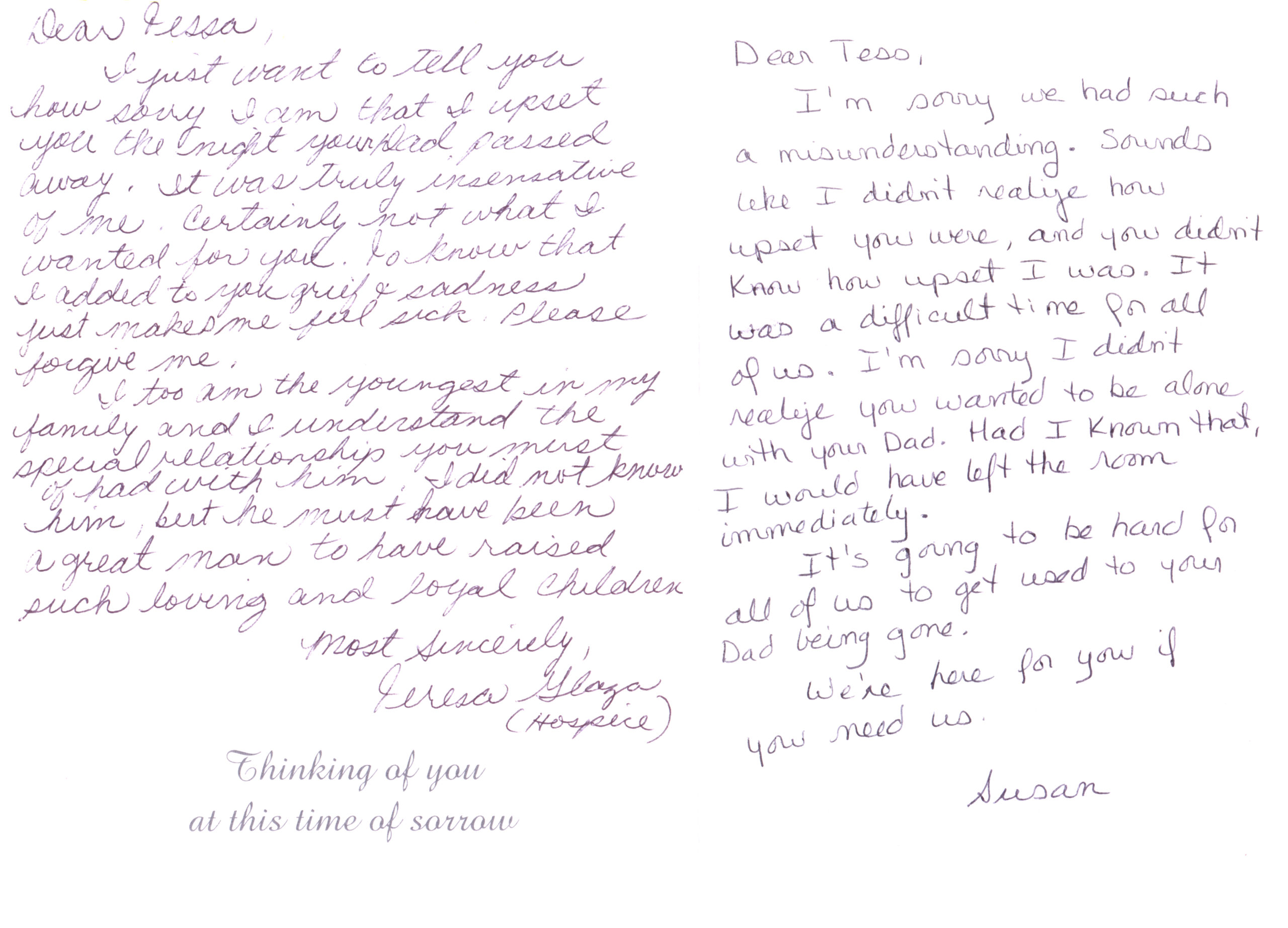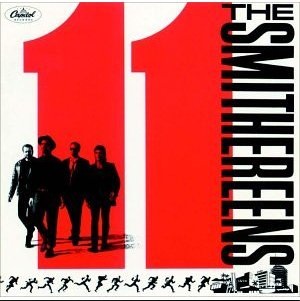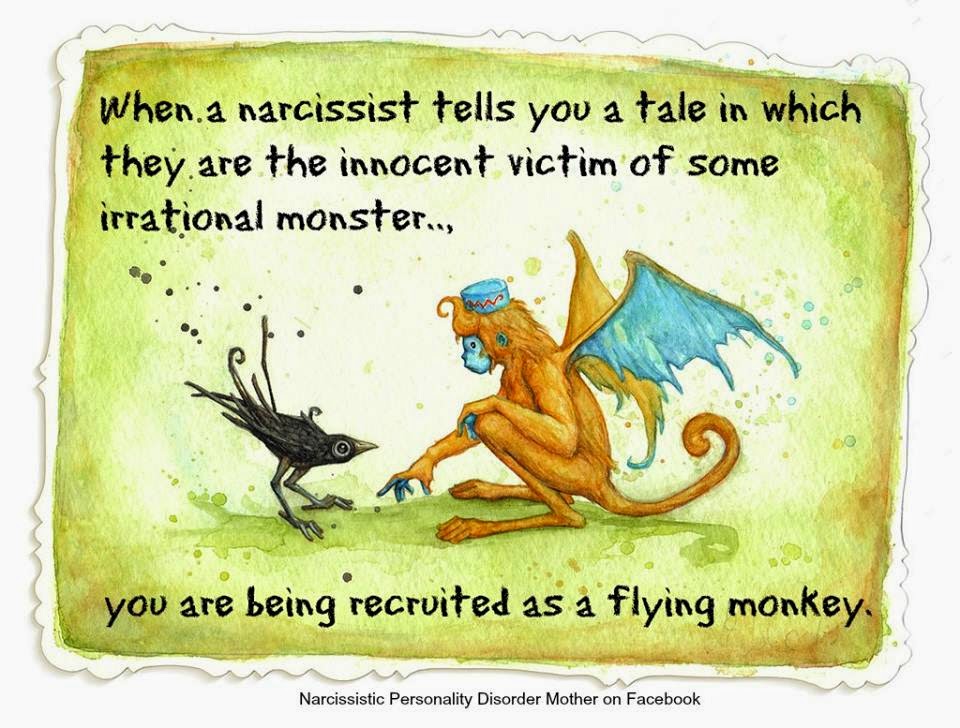Years ago, I came across an essay, probably on Flylady, about how SAHMs need to change their thinking about doing their jobs. The basic idea was, being a SAHM IS YOUR JOB, and when he goes off to work all day and earn the money, your job is to take care of the kids and the home. When he comes home and sees dirty dishes and a mess everywhere, he feels like you aren’t keeping up your part of the deal. Biblical principles were invoked.
When I read that essay a light bulb went on in my head and I realized this is probably how my parents’ marriage started to fall apart. I believe their two big issues were over cleaning and sex, and if you spend any time googling and reading mommy blogs, you’ll quickly find that these are two of the big issues for a LOT of marriages.
Now, I’m not a SAHM. I get that the job is a tough one — as many jobs are. And to me personally, the above biblical-based wifey thing sounds pretty old-fashioned. But apparently there are a lot of people who still think this way even today — there are plenty of articles and sermons out there, written well after the 1950’s, that take an extremely dim view of the woman who does not keep her side of the bargain.
For example, this one, based entirely on Proverbs, calls it “lazy”.
My parents were married in 1948, and my mom was nothing if not traditional and religious. So, it is a pretty reasonable assumption to think that these were the expectations on both sides.
The social contract of the 1950’s + traditional religious views = a woman’s job is to raise the kids and keep the home.
What makes absolutely no sense to me at all is that that whole biblical view of how a wife should be OUGHT to have been my uber-religious mother’s guideline. And I say “ought” meaning that being religious was her choice — so if she was going to be consistent, she should have stuck with the whole program, right? You don’t get to pick and choose which bits you follow and which bits you don’t!
For another example:
Here’s the thing, though: when you married, you promised that you would now be “one flesh”. That doesn’t mean that you cease to exist, but it does mean that what he wants needs to be important to you now, too. And we are called to consider others interests ahead of our own (Philippians 2:4). We are even called to submit.
So if your husband isn’t happy with the home, that should matter to you, because HE should matter to you.
I agree with that last concept, although I have to say I don’t need a 2,000YO book to tell me that. That’s just what love is. My father’s definition, which has always served me well:
Love is caring more about the other person than you care about yourself.
But, as far as I have ever known, my mom never lived up to her job. She was a lousy housekeeper and a terrible cook. As long as I ever knew her, she lived among piles of newspapers and stacks of magazines. A fair share of the time I spent at her apartment throughout junior high and high school was spent doing her dishes, cleaning her bathroom, or clearing off her kitchen table “so we could have a cup of tea”. I vacuumed, I tidied. I dusted, I stacked books neatly. I cleaned out the moldy food from her fridge, and took out her garbage. She was a master at getting other people to do housework for her, and for sure that included my sister, who I once compared to an unpaid au pair.
Mom once told me a story about my oldest brother, that when he was an astonishing 2 or 3, he made his own bed, and was very proud to show her that he could do so. Mom said, “So from then on, it became his job.” She seemed rather pleased with herself when she said it. She did not see the incongruity of dumping her responsibilities on a 3YO. One of her lifelong excuses was that she had 6 kids, so she didn’t have time for housework. Well, at that stage she only had 2 kids, so I fail to see what the time crunch was, that she couldn’t make her kids’ beds. I could see LETTING him make his bed when he wanted to “show off” to her, but making it his job from that day forward? Just not right.
My dad came from a home that was neat and clean whenever I saw it (granted, at that time there were no little kids in it), and from that home he went into the Coast Guard. There is a reason for the term “ship shape”. You just don’t have a messy ship, especially in the service. I had a friend in high school tell me once, “Your home looks like no one lives in it.” I admit, I have inherited or learned the “neat freak” side of my dad. I like a neat home, and a messy one makes me uncomfortable, to the point where I would rather clean it up than spend any time “relaxing” in it while it is messy.
Come to think of it, this trait is probably what my mom used, consciously or unconsciously, to get me to do her housework. She knew on some level that if the place was a mess when I came over, I’d be compelled to clean it for my own comfort. Wow. Now there’s a manipulative mother for you. A mother who actually cared about her child more than about herself would realize this, and instead of letting it happen time after time, year after year, she would do something about it. She would decide that it was more important to do some cleaning up beforehand, so that her child wouldn’t end up doing it, and they would be able to sit down to that cup of tea right away and spend some time together, instead of it being too late for the tea by the time I got the dishes done and the table cleared. But hey, it was no skin off her nose to wait and see if I would do it.
At one point she was capable of this kind of empathetic, maternal thinking and action. She once told me a story about a vase that I had never seen before — my best guess is that this happened when I was unpacking her stuff at the assisted living place. She told me that there were once a pair of these vases, and she really, really loved them. One day my sister broke one. Of course my mother was upset. And of course that upset my sister. My mom said she saw what that did to my sister, and she told me, “So I decided that I wouldn’t let things be that important to me any more.” In other words, she made a choice to care more about my sister than about herself. Something obviously changed by the time I knew her.
I have looked for that original Flylady “light bulb” essay several times since then, but have never found it. Instead, I found this reader question on another blog which expresses some of the same ideas.
I have a really hard time cleaning, I hate it and my definition of clean is more like tidy. Even that, though, is a stretch for me. When I was living at home I used to fight so hard with my dad because my room was always a disaster and many times it trailed out with me. Even at work, I am messy as I go about my business but I clean everything up at the end of the day.
Once my husband and I were married, I would pick up after both of us. I was constantly picking up his dishes and socks. So many socks. Doing our laundry, cooking our dinners… Everything that I figured would make him think I could be a good house wife. But that’s not me. So when my husband would travel on business, I began living in my house the way I normally would. It never really got to the point that I thought was terrible but when my husband would come home on the weekends I would make a mad dash on Friday to clean the house because I knew he would freak out. With my limited time however, it never really got “his clean”.
Now we are having it out because he is home and gets to see that my daily routine doesn’t really include cleaning. He’s really upset by this and wants me to clean more, but I don’t feel like that’s me. And we can’t seem to come to a compromise. I think it’s my house, too, and I need to be allowed to set some of the standards. What should we do to get past our conflict over housework?
What’s especially pertinent about this woman’s situation is that for most of their marriage, my dad traveled for business a lot. While I don’t know for sure — because none of my siblings will discuss it rationally — my sister has gone so far as to say, “I wouldn’t call it [the way we lived] ‘haphazard’, but…”
You have to understand that even this faint criticism of my mother is extremely unusual for my sister — so coming from her, it probably translates as “it was pure chaos.”
My dad would leave on Monday, and it doesn’t take much imagination to figure out how the end of the week probably went. Between her aversion to housework and her habit of blaming, I can easily picture my mother saying something to the kids like,
“Well, now we have to do all this work to clean up because your father’s coming home.“
Not, “because I don’t want to do it myself” or even “because we all live here and we all need to pitch in and make it nice for everyone”.
Because your father’s coming home.
I know for a fact that she would keep track of all the punishments the boys earned during the week, and make my father administer them when he came home on Friday. So many swats with the belt for this, so many swats for that. I personally saw this happen with my two younger brothers, so I am fairly certain it happened with the older ones as well.
Is it any wonder that my oldest brother stated frankly,
“We hated to see him come home on Friday, and we were relieved to see him go on Monday.”
He says this in a recorded conversation, as though this is the most normal thing in the world. It is clear they have no idea just how utterly fucked-up that sounds. They hated to see their father come home at the end of the week — but they never asked themselves why, never asked themselves where that idea came from, who put it into their heads.
It’s called “parental alienation” and it usually happens AFTER a divorce, not before:
Children instinctively love both parents and identify with both as part of themselves. They feel immense stress when that love is threatened. Therefore, when a child is told that one of their parents is bad, they feel as though they themselves are bad. This arouses in them feelings of shame, uncertainty, fear and guilt.
It is critical to a child’s sense of security and self-esteem that they be allowed to love both of their biological parents. This doesn’t mean you have to condone bad behavior. It does mean though that you have to allow the child to love who they love and feel what they feel without shame or punishment or control or manipulation.
It’s also common for people with Personality Disorders to launch distortion campaigns about the other parent and involve the children either directly or indirectly. This is toxic and highly destructive.
It is a stunning testament to the effectiveness of subtle blame-mongering over a lifetime that my nominally-genius-level sister can write to me,
“If you had a bad relationship with Mom, please think about the fact that Dad certainly colored your opinion — and as a 6-,7-, or 8- year old, you would not have even been aware of it”.
Yet she seems completely unaware that the reverse was also true — and to a far, far greater extent.


 It’s not as if they haven’t had the tools to do so. I sent them
It’s not as if they haven’t had the tools to do so. I sent them 



